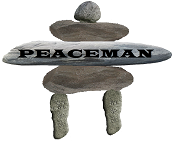At PEACEMAN, we believe in our first responder community. As such, we have created programs that contribute to leadership and professional development, both of which lead to resiliency building. Resilience is the key to reducing the traumatizing impact of the first responder operational experiences.
Within our first responder programming , you will find a number of programs that are designed to bolster safety and strong leadership as assets of positive personal and professional development in ourselves in line with the expectations of public safety in our communities and businesses.
The First Few Steps: Strengthening Emotional Intelligence in First Responders
In this workshop, we work toward an understanding of the influences on behaviour, and explore causes of workplace trauma and the pre-incident indicators of mental health decline and crisis along the mental health continuum. Together, we work together to explore our own individual strengths and challenges through the concept of “anima”: escaping the “box” of self deception and self betrayal. Finally, we discuss toxicity and the role we play in it, and look to a healthier outlook on our lives as first responders.
“Gently Used to Irreparably Broken”: A Personal View into First Responders Occupational Stress Injuries
“Gently Used to Irreparably Broken”:A Personal View into First Responders Occupational Stress Injuries is a 2-hour presentation based upon Peaceman Consulting’s program The First Few Steps: Exploring Emotional Intelligence in First Responders. Since there are so many experts in PTSD issues carrying the torch, and I am not one of those experts, this presentation addresses the cumulative stress development for first responders not fortunate enough to have access to the “Police/Fire/EMS” trifecta (ie: Bylaw/ Correctional/ Community Peace Officers, volunteer or paid on call firefighters, EMR’s, etc) benefits.
In this presentation, the presenter speaks of his own experiences as a law enforcement officer, volunteer firefighter and EMR, and shares (with permission) the stories of a few of his friends, past and present professionals in the Protective Services industry. These stories illustrate the need for early diagnosis/ intervention and ongoing support (self, family and friends, colleagues, agency and governmental support). The program speaks, then, to recognizing in ourselves the symptoms of personal and professional stress, and the impact of this stress long term, and to work on prevention and recovery.
